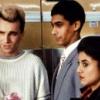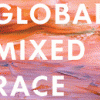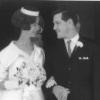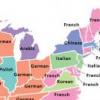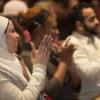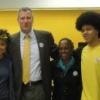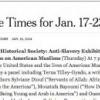“When we did the census a few times, she would be on the phone with them and they’d be like, 'Well, whatever language you speak at home is what race you are.' My mom would be furious. Having to choose I felt like was the hardest part."
Themes: Religion & Traditions
Natalie Chassler
"My grandmother had 7 children. And all the children were very close, there were no fights or anything. As a little girl some of the happiest moments were going to my grandmother -- we used to go every Sunday and have chocolate cake...We left Linden Boulevard because the depression was on and we couldn't afford the rent. I think the rent was $90 a month or something."
Yasmin Dwedar
"When you have to wake up every single day and hear about how your people are violent extremists, terrorists, and people just saying all these racist Islamophobic things, even the tiniest thing can get you emotional because you have to hear it every single day."
June Kaplan
"My father was one of 12, only four of whom actually came through the war. The rest were either killed in Germany — I don’t know how many of them were interned in camps. There’s a hole in the knowledge that we have about the Feigenheimer side of the family. And one of the things I’m going to do when I’m retired is go back and patch together what happened to the other 11 brothers and sisters."
Lyn Hill
"We kind of went for the high holidays and for the other holidays as well, for Sukkoth and Simchat Torah and Hanukkah and then my parents very often went on Friday nights and I did go through a period when I was maybe 13, 14, 15 years where I actually went every Saturday morning by myself...And then I went less often until -- maybe mostly just for high holidays until I got married at which time nobody from Habonim would marry us because I was marrying a non-Jew and for many, many years that w
Yasmin Nagi
"My cousin lives in Colorado, and she plays soccer. She wears a hijab. This year was her first game. It was a pretty big deal. And the referee didn’t let her play because of the hijab. She was pretty hurt, but her teammates were great enough to post up a picture of all of them wearing hijab, in support for Samah. And the picture really went viral. That day, they all did play with the hijab on.
Neela Miller
"I was the only vegetarian kid in my school, and there was a trip, sixth grade, where it was an overnight trip and it was this big thing and we would all go to the woods, Stokes Forest in New Jersey, and it was a few days long. And I had to ask for special meals, and so they cooked me this special thing and it was always way better than everybody else’s food. And everybody would be eyeing my plate."
Monica Elias and Roy Walter
"This particular synagogue condones the questioning, and condones the ambivalence, and says that blind faith is not what it’s about. This is what makes this a vibrant community, that we are always asking questions, and we have different opinions. It’s got to be a living religion. It can’t be resting on the liturgy that is really old, and may not be applicable to this community."
Whitley Watson
"It gets really, really frustrating, because people do think people from the south are all just like redneck crazy racists, and they think that you come up here and are in this paradise of stuff, and it’s like no, people are still -- there’s a lot of problems up here."
Fiona Gardner and Uche Nduka
"People look at us as if we dropped in from the clouds, even at this phase of human history. I didn’t know that we can still have that kind of reaction, even within New York. It’s not like people voice it out in terms of antagonistic confrontation, but they can still see it in the eyes. The surprise -- “Oh, how do they manage?” You know: “how did that happen?” And all that."



